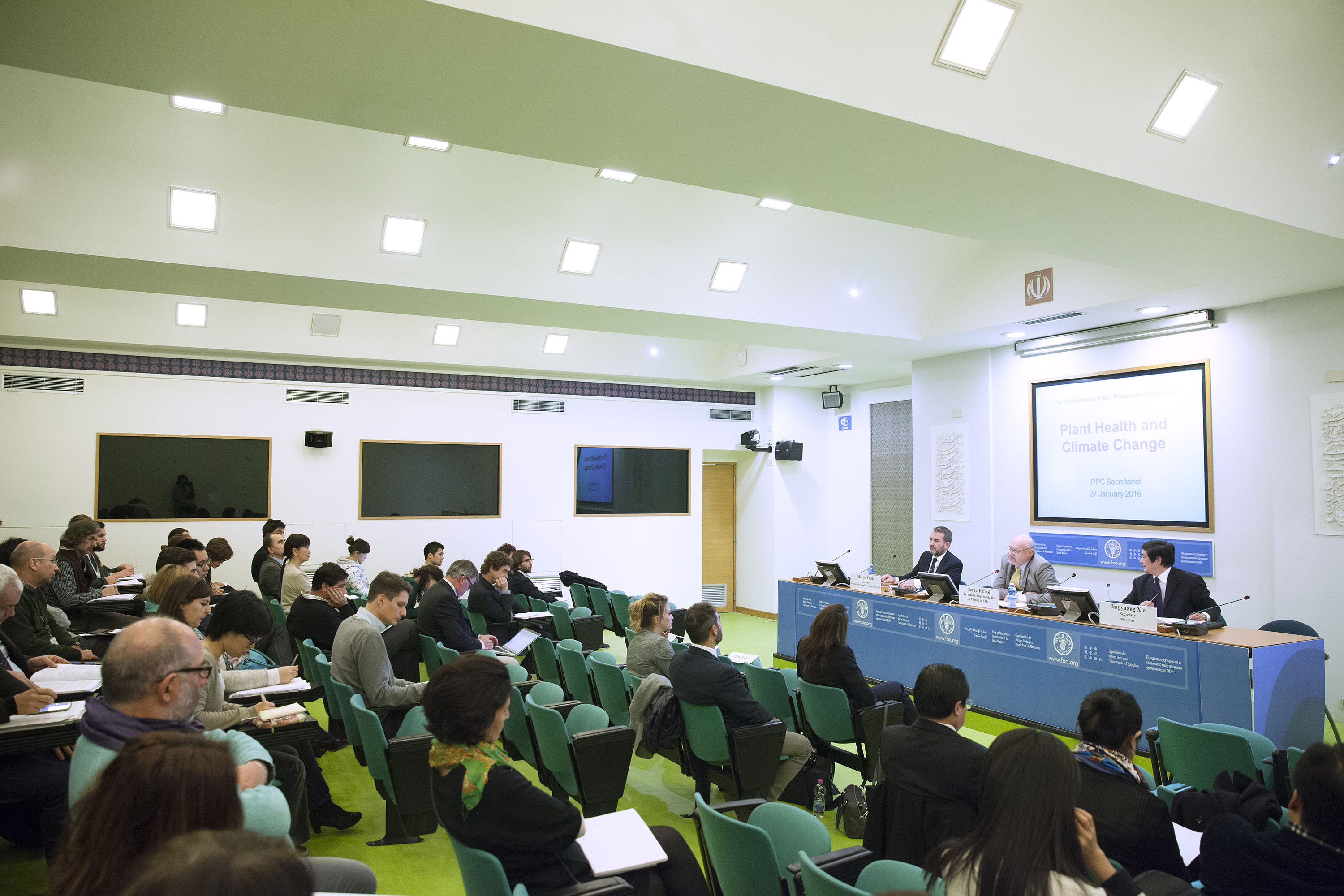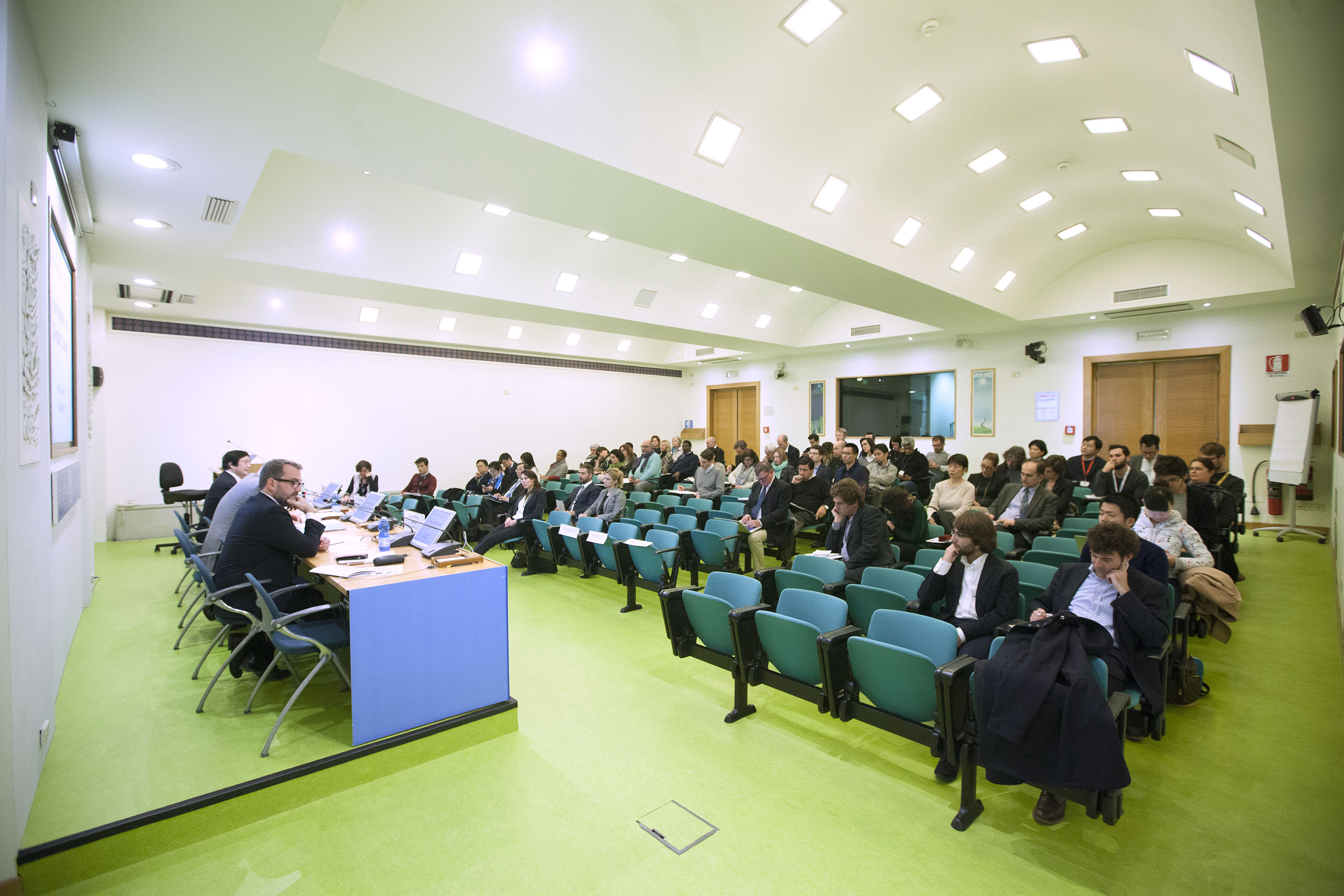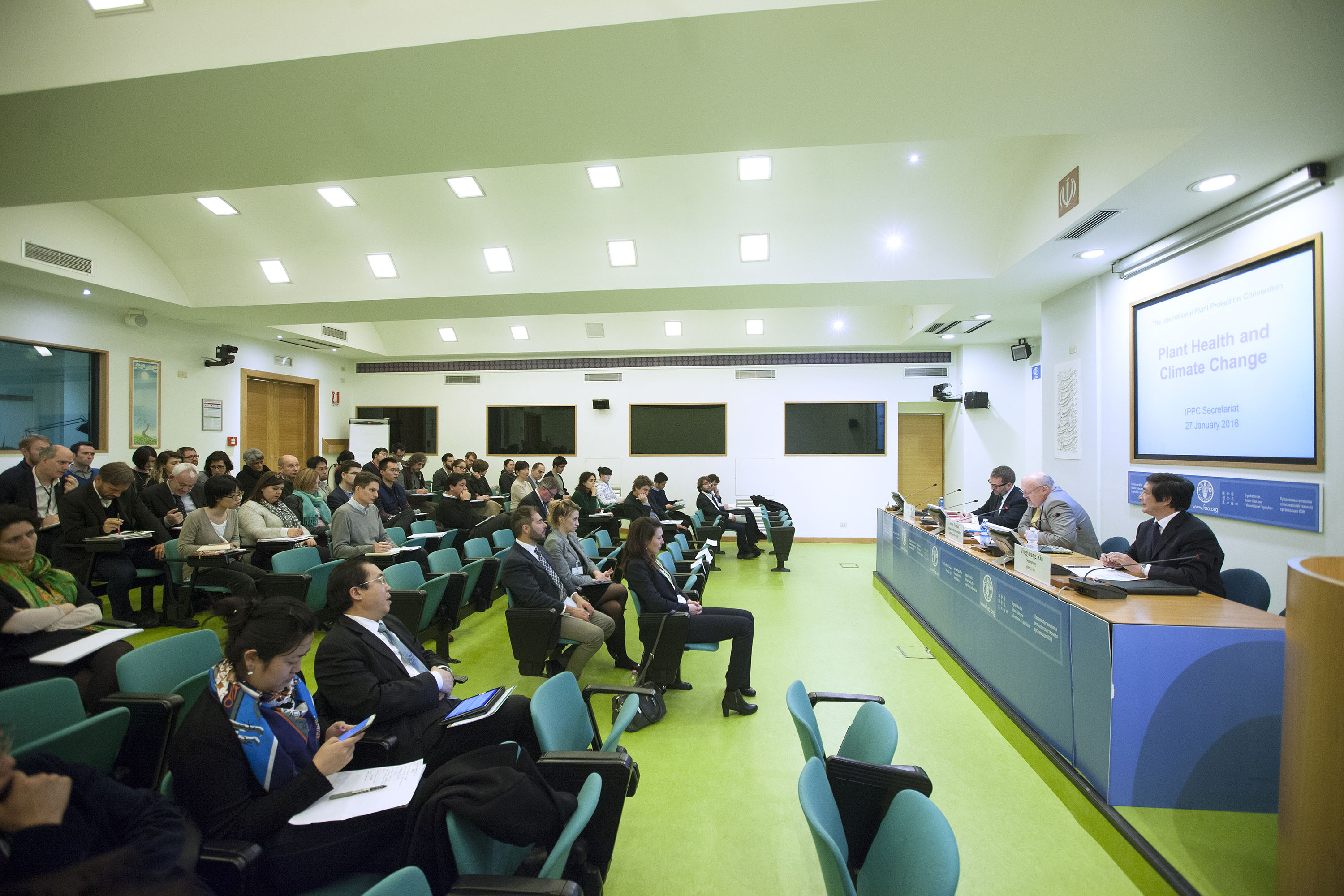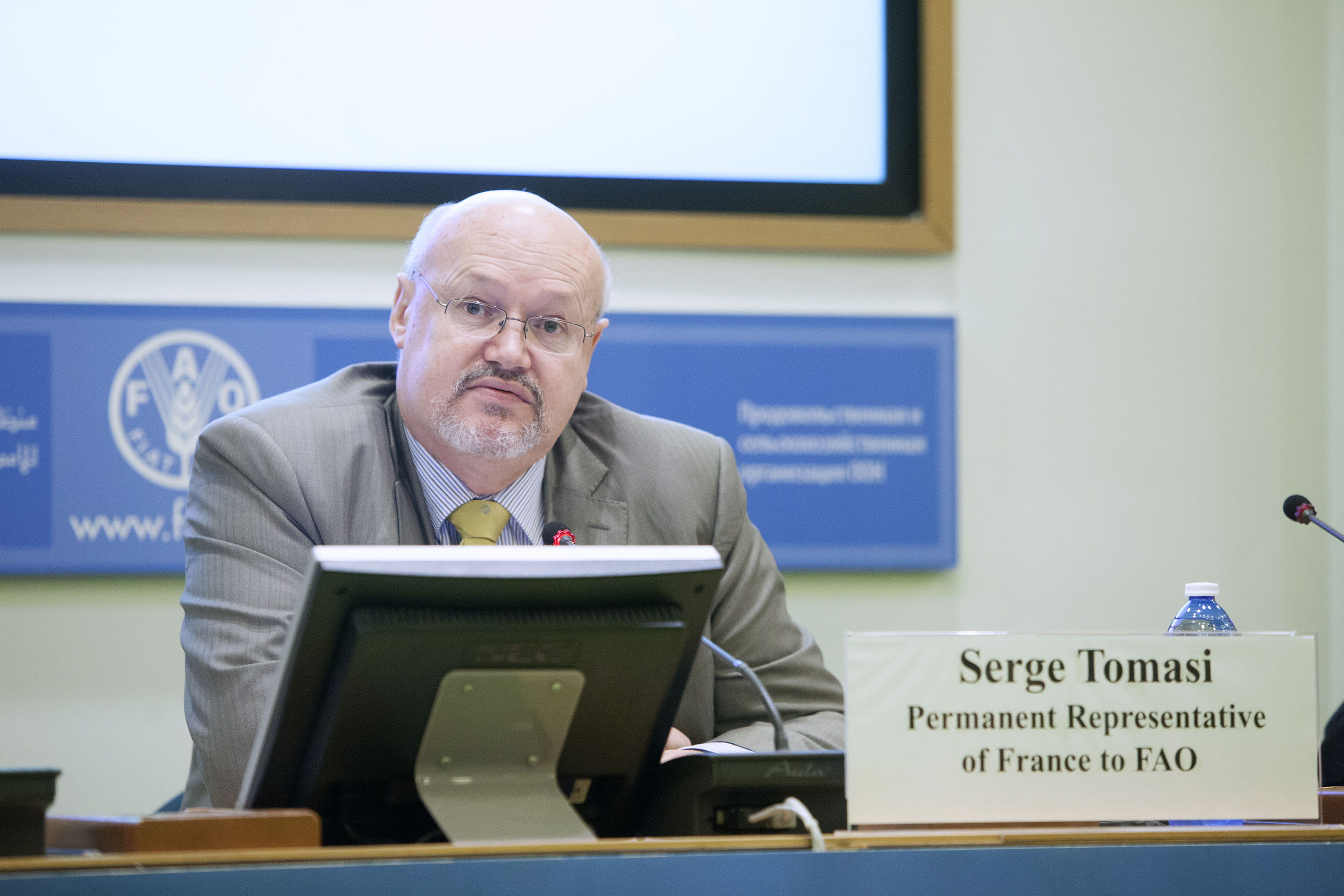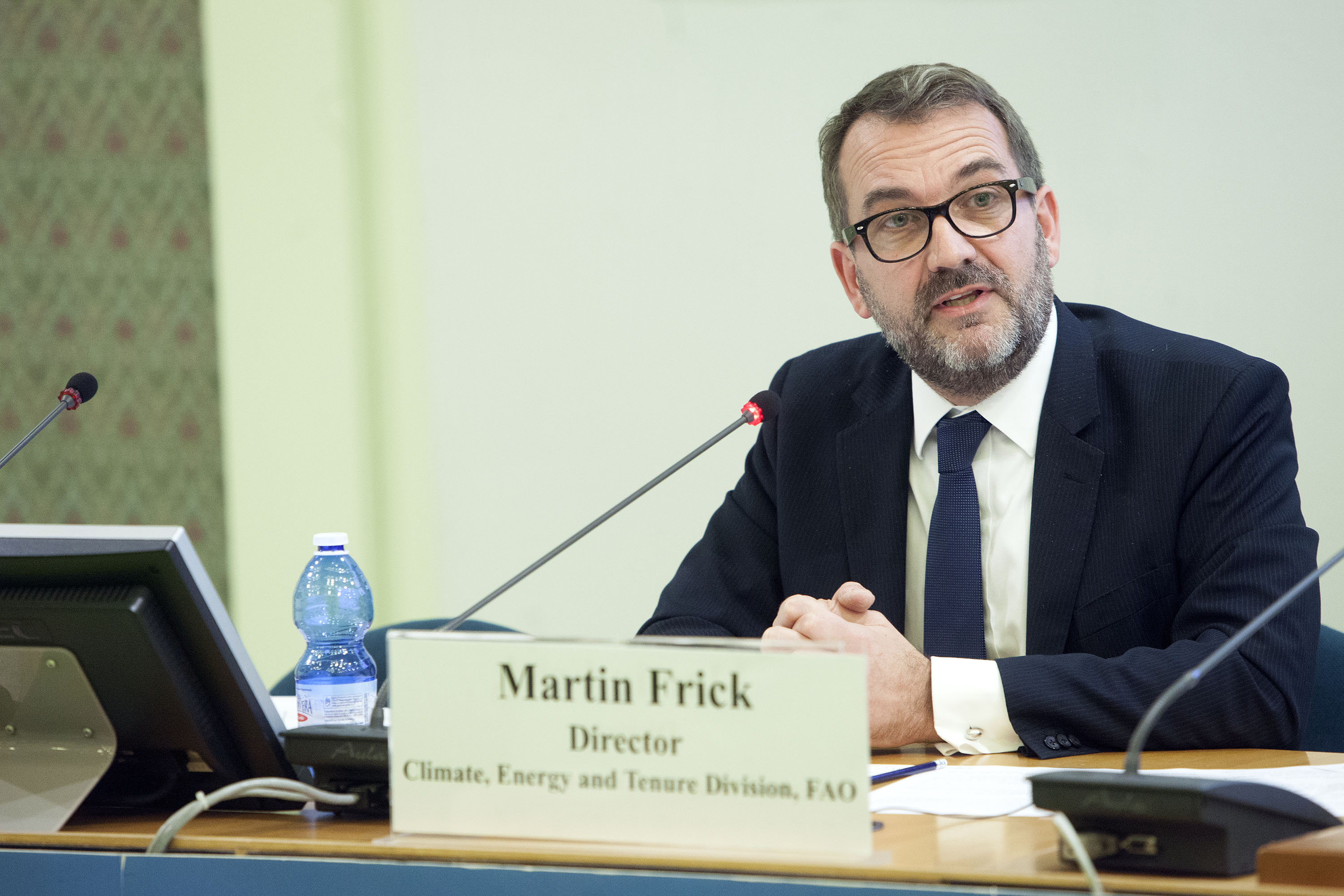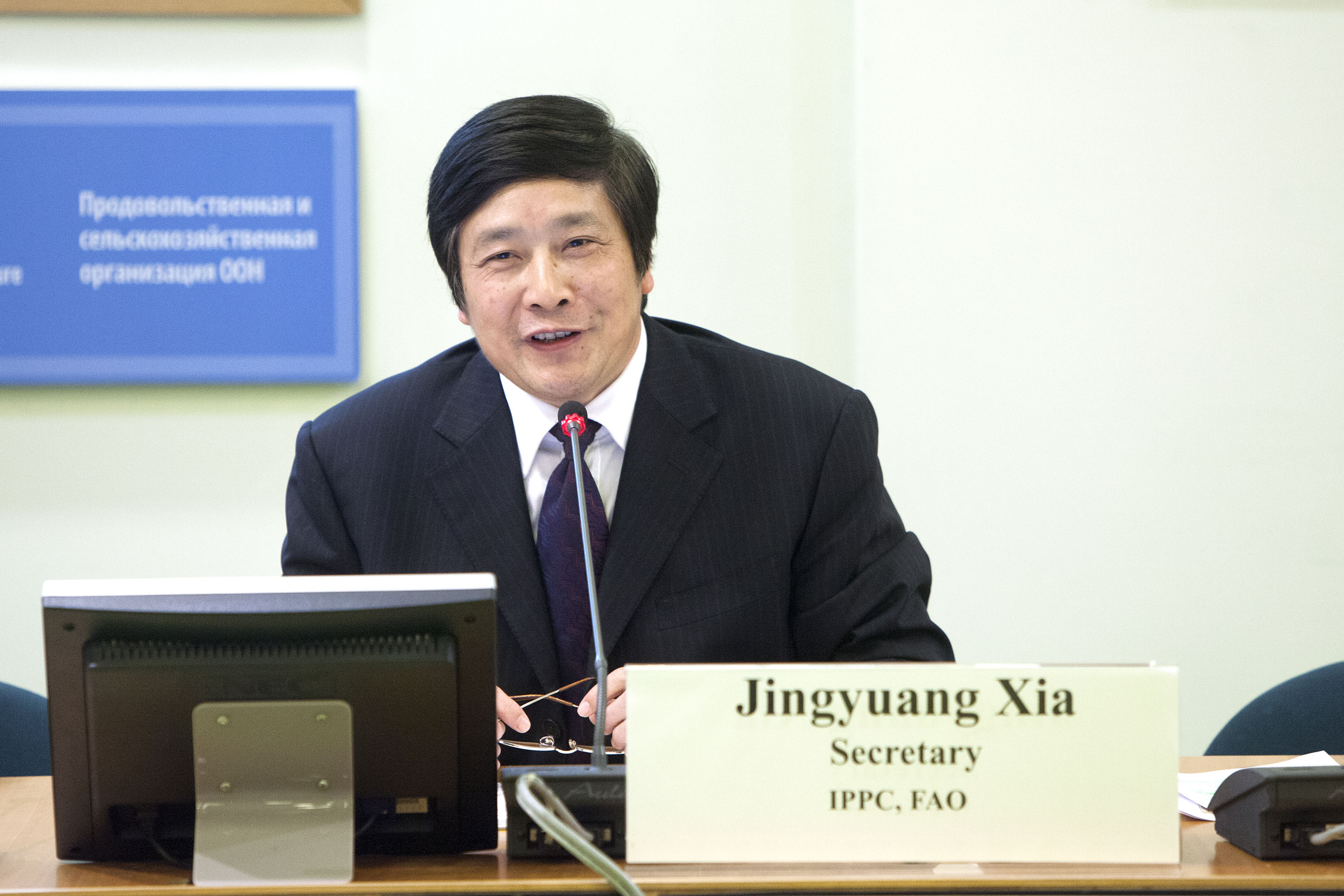Plant Health Management Essential to Mitigate for Climate Change
Posted on Fri, 29 Jan 2016, 16:26
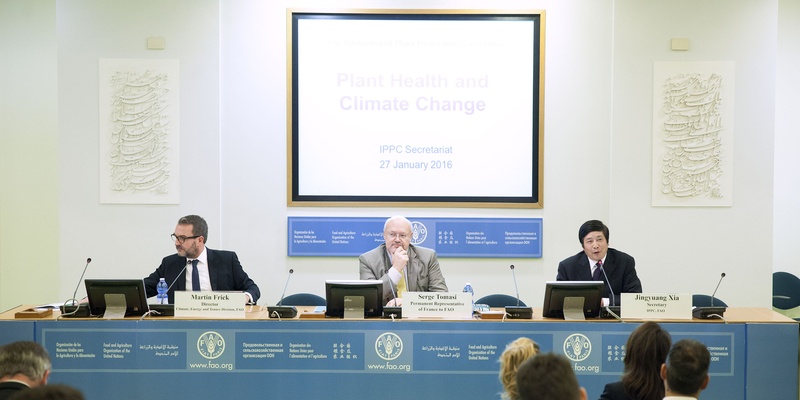
The 3rd IPPC Seminar on Plant Health and Climate Change was held in FAO-HQ on 27 January. The Seminar was chaired by Mr Jingyuan Xia, the Secretary to the IPPC Secretariat, with over 80 participates present including those from Missions or Embassies of China, France and South Africa. There were also some participates from Argentina, Canada, Egypt, Ivory Coast, USA, etc. through virtual meeting. Three internationally recognized speakers made the speech: His Excellency Serge Tomasi (French Ambassador to the UN Agencies in Rome) presenting on the Achievements and Implications of COP 21 on Climate Change; Mr Martin Frick (Director of Climate, Energy and Tenure Division in FAO) resenting on the Implications of this Agreement for Agriculture; and Mr Jingyuan Xia presenting on the Importance of Plant Health for Mitigation of Climate Change.
His Excellency Serge Tomasi noted that the Paris agreement is a success because it is the first adopted universal agreement on climate change, based on national contributions provided by 187 countries. The agreement is ambitious, legally binding, inclusive and balanced. The agreement affirms the obligation to support developing countries in their efforts to reduce emissions and adapt to climate change. The Paris agreement is not a final text but a starting point, or a turning point, to address climate change, including agriculture.
Mr Martin Frick noted that agriculture is extremely vulnerable to climate change and according to the IPCC 5th Assessment Report, declines in global crop yields could reach 10-25% or more by 2050. Almost 80% of the world s poor live in rural areas and earn income from agriculture and their livelihood and food security is closely linked with the productivity - and resilience - of agriculture. For many of the world s poorest people, adapting to climate change is synonymous with ensuring food security. Climate change could not only undermine SDGs 1 and 2, but the entire 2030 Sustainable Development Agenda. Food is the most basic human need and is a precondition to social and economic development. Agriculture is still the biggest employer on the planet, and is threatened by climate change.
Mr. Jingyuan Xia noted that the significant effect of climate change on plant health. He provided a number of examples where pest impact and distribution had changed for the worse due to climate change effects. It is essential countries need to manage pests risks to protect food security, the environment and market access. The IPPC provides a global forum of 182 contracting parties to get consensus, including addressing climate change. Countries need to address governance through regulation and legislation - revision or new, the utilization of new or existing technologies, increase awareness of both the challenges and solutions through well-structured and coordinated communication programmes, and build increased international cooperation through for a such as the IPPC. Strengthening capacity development, improving infrastructure, improving sustainable human and financial support, developing international and national strategies with priorities, and their implementation are central to the success in addressing climate change. The mandate of the IPPC addresses all these areas in terms of pest risk analysis and the global movement of plants and plant products. Addressing climate change is implicit in much of the work the IPPC undertakes (e.g. standard setting and capacity development) but more needs to be done in terms of implementation for climate change mitigation.
A recording of this seminar can be found here.
